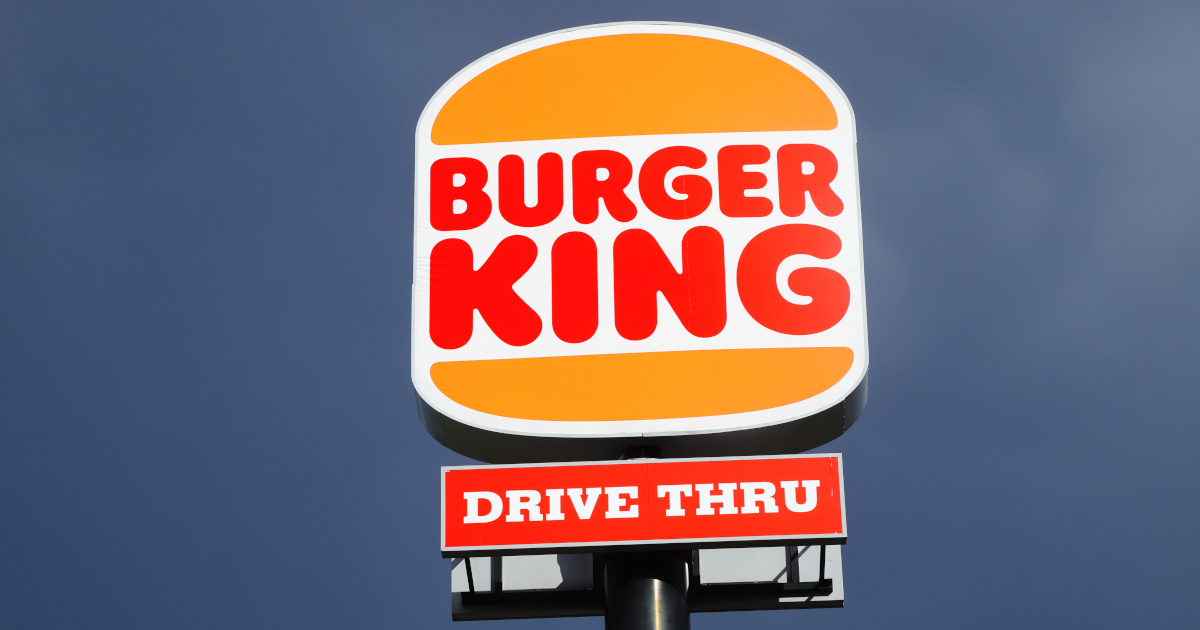Restaurant Brands International CEO announces that alternatives to toxic PFAS are being tested and more details will be shared “in the next few months”
Public health advocates urge Burger King to act faster and disclose the full ingredients of the alternatives
WASHINGTON, D.C.—At the annual shareholders meeting held today, Jose Cils, CEO of Restaurant Brands International (parent company of Burger King, Tim Hortons, and Popeyes), publicly addressed the issue of toxic PFAS (per- and polyfluoroalkyl substances) chemicals in its food packaging materials for the first time.
Mr. Cils acknowledged that PFAS chemicals are a “nonstick substance that creates a barrier so that food doesn’t leak through the packaging” and went on to state that “our procurement and brand teams are looking at several alternatives to still achieve the leak barrier that we want without using the PFAS chemical.” Mr. Cils stated that, “there’s more work to be done in 2021 on this task but results have been positive, and we plan to share more details in the next few months about our packaging roadmap as it relates to PFAS.” (emphasis added) The company also shared that Tim Hortons has developed and evaluated PFAS-free materials over the last year including a vegetable-based additive.
In response, the Mind the Store campaign and Toxic-Free Future released the following statements:
“We are disappointed that Burger King and RBI still have not adopted a policy to phase out and ban PFAS,” says Mike Schade, Mind the Store campaign director. “We’re encouraged to hear the company is investigating alternatives, is beginning to make headway, and has promised to share their progress in the months ahead. We hope they move quickly to phase out and ban PFAS. Competitors like Wendy’s have already committed to doing this by the end of 2021, and Burger King should be no different. Any alternatives that they use must be fully disclosed to ensure we’re not replacing one toxic chemical with another.”
“Our testing last year found Burger King also serves burgers in PFAS-free wrappers, which shows they’ve already found alternatives,” explains Erika Schreder, science director at Toxic-Free Future. “Burger King shouldn’t be using this toxic packaging—they owe it to their customers to serve food in safe packaging.”
Toxic-Free Future, the Mind the Store campaign, Safer Chemicals Healthy Families, and Safer States today launched Polluted Polly—a creative new campaign mascot highlighting the need to ban PFAS chemicals from food packaging materials through policy actions at federal, state, and corporate levels. On a mission to protect people, communities, and the environment from toxic PFAS chemicals, Polluted Polly has begun to travel the country to urge retailers and policymakers to ban PFAS in food packaging while telling the story of the dangers of “forever chemicals.”
PFAS BACKGROUND
A 2020 report published by the Mind the Store campaign and Toxic-Free Future found major fast-food chains such as McDonald’s, Burger King, and Wendy’s likely serve up toxic PFAS with some of their most popular takeout foods. Of the six restaurants sampled from this study, Burger King is the only one that has not yet announced a timeline to ban PFAS in food packaging. Toxic-Free Future’s peer-reviewed study published in May 2021 found PFAS in 100% of breast milk samples and that newer PFAS build up in people. Scientists often refer to PFAS as “forever chemicals” because they don’t break down in the environment.
PFAS are chemicals used to impart stain, grease, and water resistance to food packaging, carpeting, upholstery, and apparel. Scientists have found links between exposures to PFAS and a wide range of health problems. A consortium of scientists published a scientific statement emphasizing the dangerous health impacts of PFAS and other toxic chemicals in food packaging, noting how easily these chemicals migrate out of packaging. Toxic exposures continue even after the packaging is disposed of. Evidence shows that these chemicals can make their way back to people through drinking water, food, and air.
Mind the Store’s research finds that top food retailers are increasingly adopting safer chemicals policies to reduce and eliminate harmful chemicals. Over the past two years, 18 food retailers, including Ahold Delhaize, Albertsons, Amazon.com, Cava, Chipotle, Freshii, McDonald’s, Panera Bread, Sweetgreen, Trader Joe’s, Wendy’s, and Whole Foods Market, announced steps to reduce or eliminate PFAS in food packaging at their more than 77,000 stores.
Some state and local governments are moving to phase out classes of toxic chemicals, such as PFAS, from food packaging in favor of safer alternatives. Over the past two years, Washington, New York, Maine, and Vermont have enacted policies that phase-out PFAS in food packaging that begin taking effect in December 2022. Federal legislation to ban PFAS in food packaging, the Keep Food Containers Safe from PFAS Act, is expected to be reintroduced by U.S. Representative Debbie Dingell.
MIND THE STORE CAMPAIGN
The national Mind the Store campaign is a program of Toxic-Free Future and challenges big retailers to eliminate toxic chemicals and replace them with safer alternatives. The campaign publishes the annual retailer report card that benchmarks and scores major retailers on their safer chemicals policies and implementation programs. The fifth annual report was released in March 2021. www.mindthestore.org and www.retailerreportcard.org
TOXIC-FREE FUTURE
Toxic-Free Future advocates for the use of safer products, chemicals, and practices through advanced research, organizing, and consumer engagement to ensure a healthier tomorrow. www.toxicfreefuture.org
###
MEDIA CONTACT
Stephanie Stohler
[email protected]

